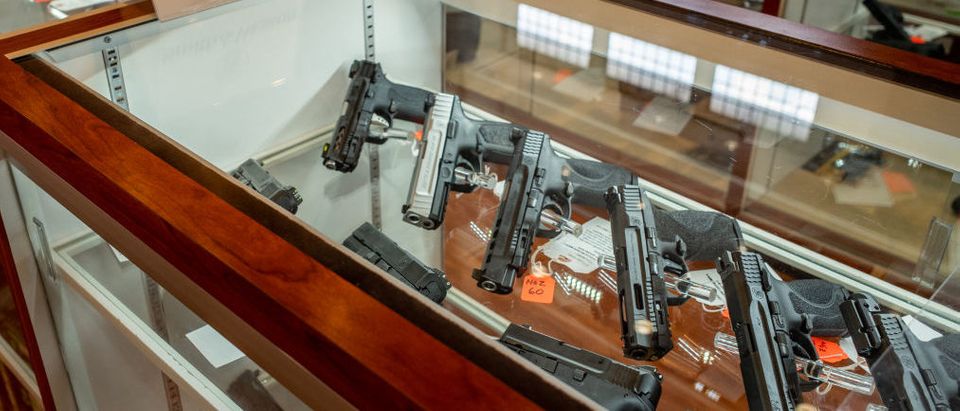A federal judge in Texas ruled Monday that people under felony indictment can still buy guns, citing the Supreme Court’s recent landmark decision.
U.S. District Judge David Counts ruled that the Supreme Court’s June decision in New York State Rifle and Pistol Association v. Bruen meant that the Second Amendment could not be treated as a “second-class right.”
The case began after Jose Gomez Quiroz was attempted to buy a gun while under a state burglary indictment and was charged for violating a federal ban on attempting to buy firearms while under felony indictment, according to the Associated Press. Counts cited the Supreme Court’s ruling that gun restrictions should only be upheld if they are rooted in history and ruled that there is no legal tradition of preventing someone charged with — but not convicted of — a felony from buying a firearm.
“Although not exhaustive, the Court’s historical survey finds little evidence that … [the federal ban] – which prohibits those under felony indictment from obtaining a firearm – aligns with this Nation’s historical tradition,” he wrote in his ruling. “[T]he Government must prove that laws regulating conduct covered by the Second Amendment’s plain text align with this Nation’s historical tradition. The Government does not meet that burden.”
Counts did, however, acknowledge thought that his ruling could have “real-world consequences” and that “valid public policy and safety concerns exist.”
Here is Trump Judge David Counts’ ruling that the Second Amendment protects an individual’s right to purchase a semiautomatic firearm after he has been indicted by a grand jury—here, for burglary and jumping bail. https://t.co/TV7biH83GG pic.twitter.com/TdshicxVHV
— Mark Joseph Stern (@mjs_DC) September 20, 2022
Counts was appointed by former President Donald Trump and assumed office in 2018. (RELATED: ‘Dissolve The Supreme Court’: Liberals Go Ballistic Over SCOTUS Upholding Gun Rights)
In June the U.S. Supreme Court ruled 6-3 that Americans have the right to carry firearms in public, with Justice Clarence Thomas authoring the majority opinion.
“The constitutional right to bear arms in public for self-defense is not ‘a second-class right, subject to an entirely different body of rules than the other Bill of Rights guarantees,” the court ruled. “The exercise of other constitutional rights does not require individuals to demonstrate to government officers some special need.”


